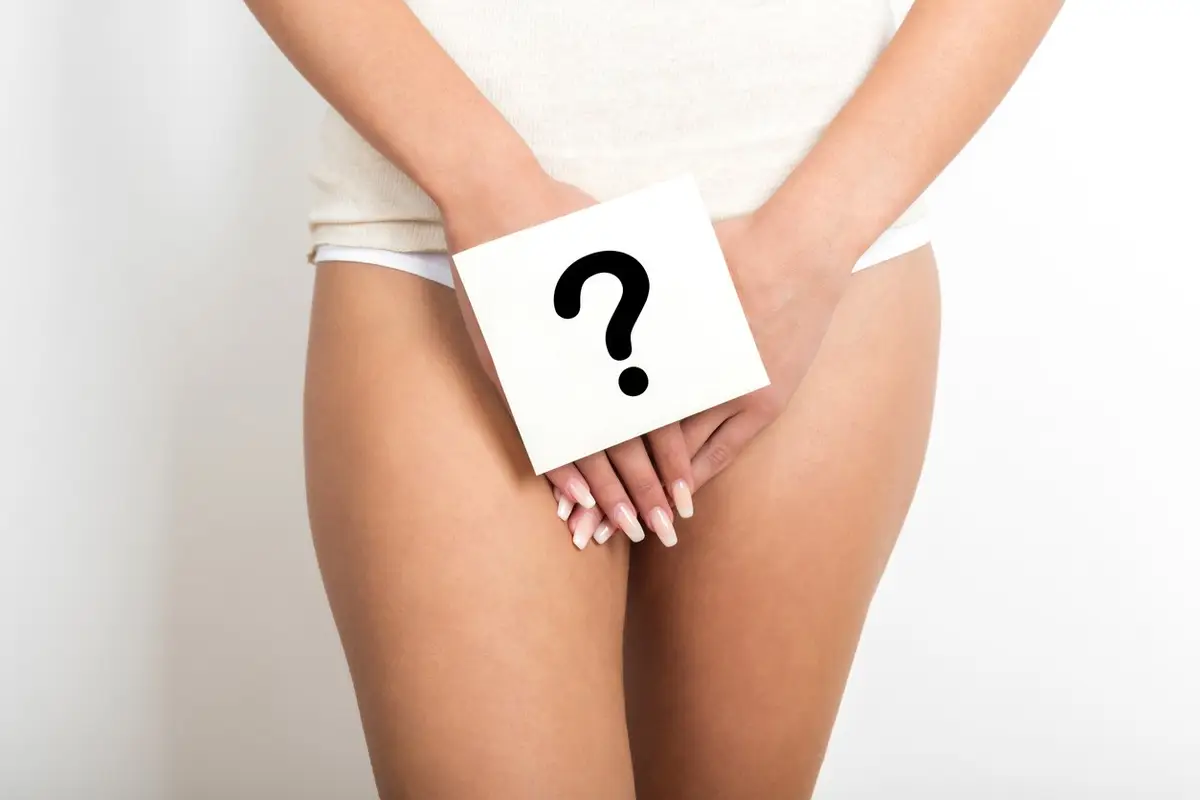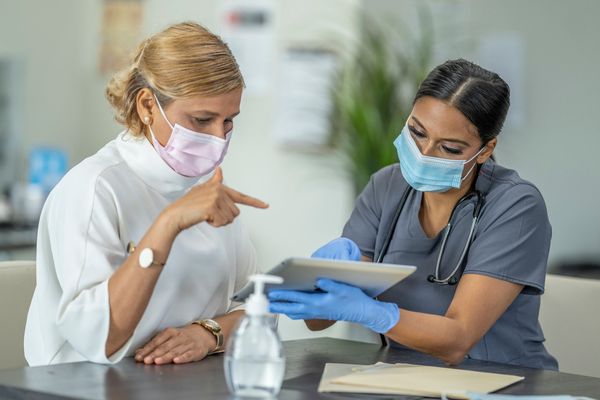Have you ever felt a heavy feeling in your pelvic area and wondered if something was wrong? Even if it doesn’t hurt exactly, the heaviness can be uncomfortable and make you anxious if you don’t know what’s going on.
You probably don’t have to worry — many causes of pelvic heaviness are common and easily treatable — but sometimes you should talk to your HCP to be sure.
We’ve put together a list of some common reasons for pelvic heaviness.
Pregnancy
Pregnancy symptoms change throughout the months, but one symptom when you have a baby on board is heaviness in your pelvic area. This makes sense when you remember your intestines and organs are being pushed and moved to make room for your expanding uterus. If your pregnancy is further along, you may also experience a heaviness from fluid and tissue growth.
Prolapse
Vaginal prolapse, one type of pelvic organ prolapse (POP), is when some of your vaginal or uterine tissues move into the vaginal canal. This happens when your pelvic floor muscles become weak or get damaged and can’t hold up your organs and keep tissues in place. Women are embarrassed to talk about it, but it’s relatively common — about 1 in 3 women experience vaginal prolapse at some point during their lifetimes.
Many women with POP don’t experience any symptoms, but one of the more common symptoms is a feeling of heaviness in the pelvic area or pressure in the pelvis and vagina. It might even feel like something is falling out of your vagina (spoiler alert: it totally could be). Other symptoms include trouble emptying your bowels, pain during sex and constipation.
Urinary tract infection (UTI)
A urinary tract infection (UTI) can cause a feeling of heaviness or lower abdominal pain.
UTIs can become more serious and lead to kidney infections which can cause damage and lead to sepsis. If you feel burning pain when you urinate or a constant urge to urinate, have an unusual odor or color in your urine, have a fever or feel shaky, or experience abdominal pain, you could have a UTI and should contact your healthcare provider (HCP) right away.
Endometriosis
Endometriosis is a condition where tissues similar to the ones that make up your uterine lining grow outside of the uterus, including in the pelvis, bowel, fallopian tubes and ovaries, and can stick to other organs. This tissue growth can lead to pain and infertility and — you guessed it: cause heaviness in the pelvic area or abdomen. If you have painful menstrual cramps, pain during sex, heavy periods, spotting or painful bowel movements, make sure you tell your HCP.
Constipation
Not being able to poop for a few days can definitely be the culprit if your lower abdomen feels heavy. Constipation is common, and most people experience it at some point. Changes in diet, exercise, illness, medications or other lifestyle factors — like travel — can cause constipation. Adding fiber and more fluids to your diet may help.
Sexually transmitted infections (STIs)
Certain sexually transmitted infections (STIs), also called STDs (sexually transmitted diseases), can cause feelings of heaviness in the pelvic area. For example, chlamydia can cause pelvic discomfort and, when left untreated, can lead to pelvic inflammatory disease (PID), which can cause endometriosis, infertility and other health conditions.
You may experience a burning sensation when urinating and/or have discharge from the vagina, pain or discomfort during sex, and eventually lower back or extreme pelvic or abdominal pain. STIs can also cause itchiness and odors.
Appendicitis
Appendicitis is an infection of the appendix that typically requires surgery. It most often causes pain on the lower right side of the abdomen, but may also cause a heavy abdominal feeling for some people. Heaviness in the right side of your pelvis or abdomen that gets more painful over time — or pain that’s so bad, you can’t jump — can indicate appendicitis. Medical treatment is vital, so seek care immediately.
Ovarian cyst
Ovarian cysts are fluid-filled sacs that develop on ovaries. They can cause little or no discomfort, are typically harmless, and require no treatment. At other times, though, they may burst or twist, causing pain and, if not treated, can damage or destroy ovaries.
Most people who develop ovarian cysts and experience symptoms that are not a medical emergency will notice some fullness, pressure or a heavy feeling in the pelvic area. They may also experience pain on one side, bloating or sharp pain below the belly button. If the pain is sudden, severe, will not go away or is accompanied by fever, nausea, lightheadedness or dizziness, seek emergency care.
Period
For those who menstruate, period symptoms can range from non-existent to extreme. Feelings of heaviness in the pelvis are relatively common during your period. As the volume of blood in the uterus increases, it might cause that heavy sensation in your pelvis. During or leading up to your period, you may also experience water retention, bloating and gastrointestinal issues that cause heaviness, such as constipation.
Uterine or Ovarian Cancer
Although rare, feelings of heaviness in the pelvic area or lower abdomen can indicate uterine or ovarian cancer. Ovarian cancer often develops with few symptoms, but one symptom can be heaviness. Other symptoms include feeling full quickly or having difficulty eating, pelvic pain, back pain, fatigue, constipation, pain during sex, and trouble peeing or an urgent need to pee.
If you have heaviness in your pelvic area and any of these other symptoms, tell your HCP immediately.
Fibroids
A fibroid is usually a non-cancerous mass of muscle tissue that develops inside the uterine wall. Fibroids are very common: About 4 out of 5 women will have fibroids before age 50, but only about 1 out of 5 of them will experience symptoms.
When there are symptoms, heavy bleeding is the most common, but heaviness in the pelvic area may also happen. This pressure or heaviness is typically due to an increase in uterus size from the fibroid. Bowel or bladder pressure may also occur if fibroids put pressure on these organs. When this happens, you may have trouble with constipation or peeing. Sometimes fibroids can shrink on their own, but sometimes they need treatment.
As you can see, the reasons for a heavy feeling in your pelvis may range from nothing to worry about to something serious. If you’re worried about your pelvis feeling heavy or if you have any of the more concerning symptoms discussed above, be sure to tell your HCP.
- 36 Weeks Pregnant: Feeling Pelvic Pressure ›
- Pelvic Organ Prolapse Hub - HealthyWomen ›
- Signs You May Have a Bladder Issue - HealthyWomen ›
- Facts About the Pelvic Floor - HealthyWomen ›
- 4 Things That Pain in Your Left Boob Might Mean - HealthyWomen ›
- 5 Things You Should Know About Pelvic Organ Prolapse - HealthyWomen ›







